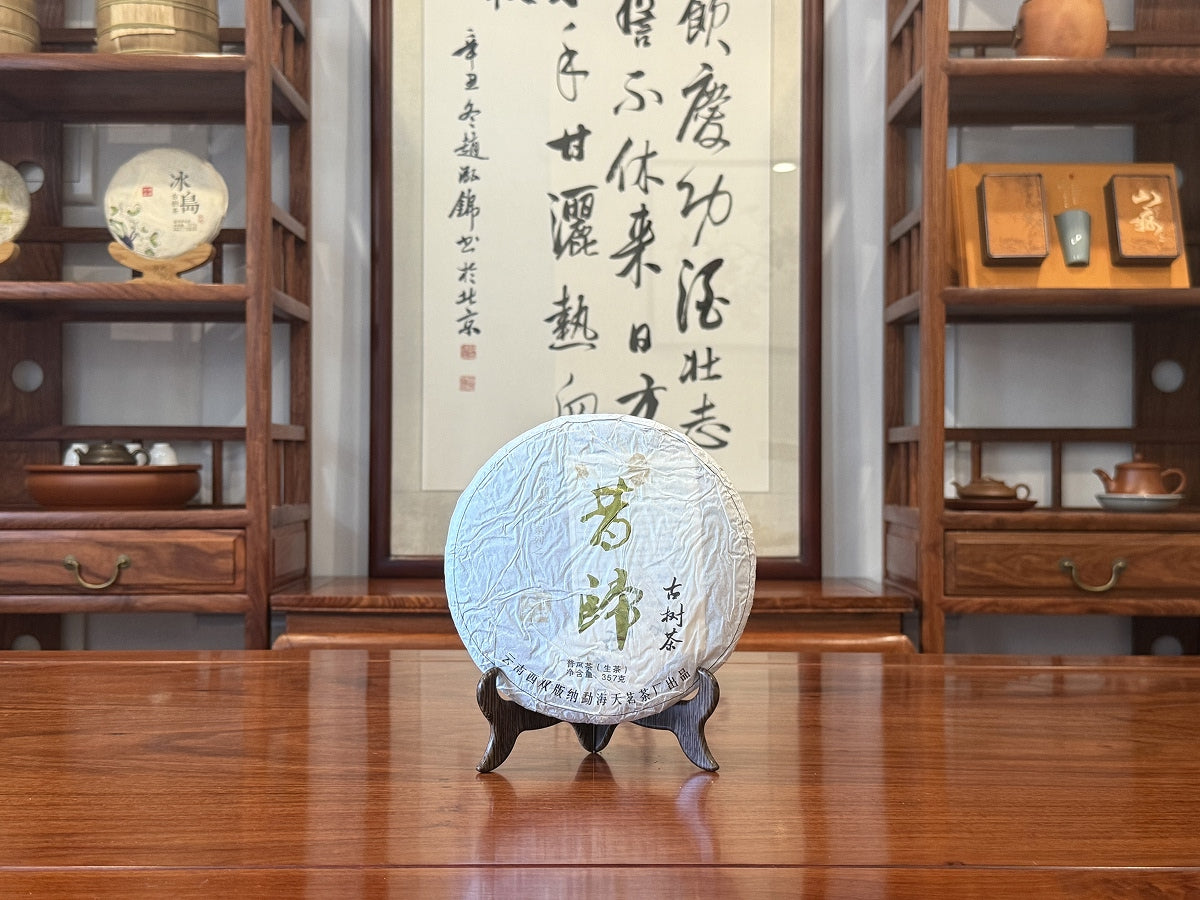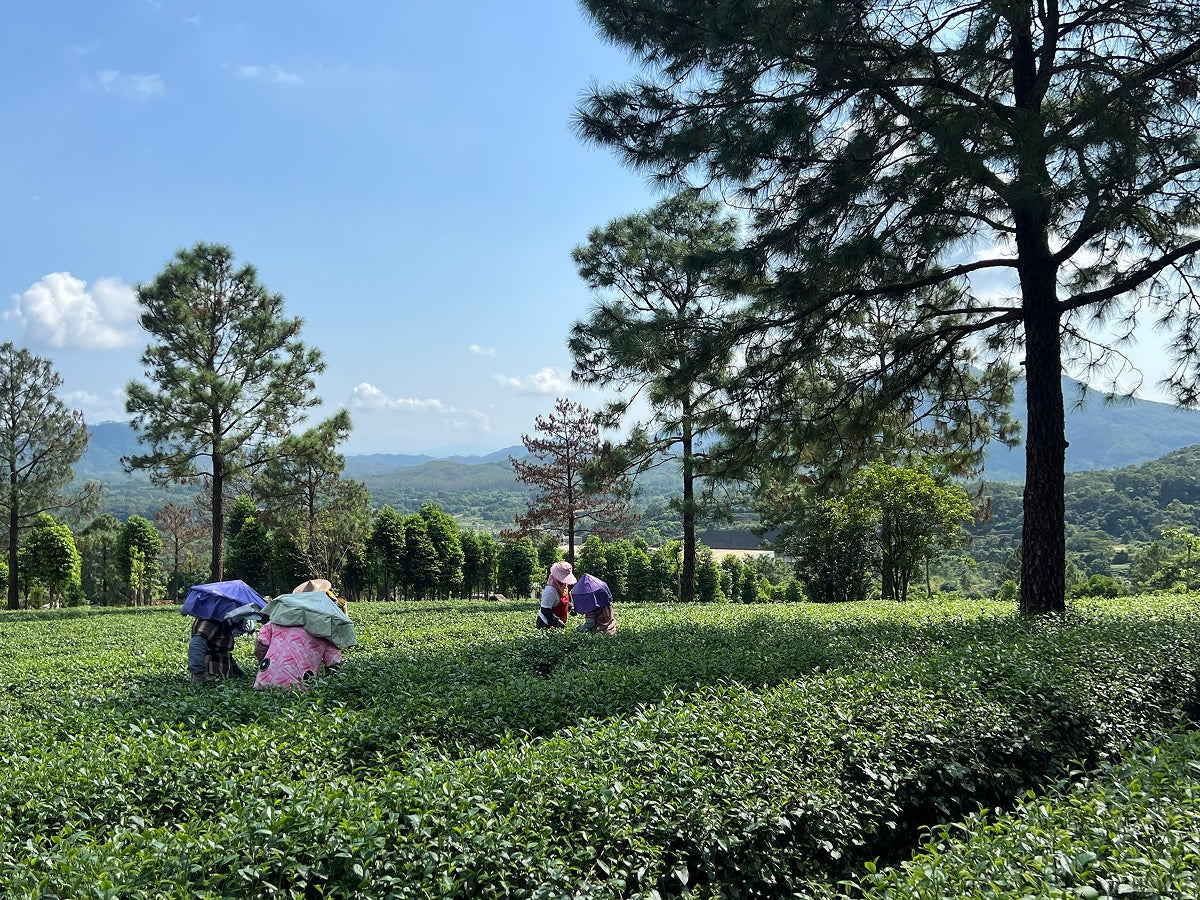
2009 Xigui Raw Puerh Tea Cake
Yunnan Pu-erh (Pu’er)

Tea lovers often say, "The best tea comes from high mountains and misty clouds." However, this 2009 Xigui Raw Puerh Tea Cake (also spelled Pu-erh) breaks that convention, being a rare, high-quality tea from a low-altitude region.
The Origins of Xigui Puerh
Xigui Village in Lincang City, Yunnan Province, sits along the banks of the Lancang River, nestled against snow-capped mountains.
This small village is home to over 60 tea-farming families, cultivating more than 400 mu (approximately 66 acres) of tea gardens. The area is dominated by Bangdong large-leaf tea trees, with an average age of around 200 years.
Distinctive Leaves and Flavor
The leaves of Xigui Puerh are delicate yet thick and robust, producing a soft, sweet liquor characteristic of premium Raw Puerh.
Among tea enthusiasts, it has earned the nickname: "the look of a beggar but the spirit of a prince," reflecting its unassuming appearance and extraordinary character.
Careful Storage and Limited Release
Since harvest, this 2009 Xigui Raw Puerh Tea Cake has been carefully stored by the Chinese Tea Group.
After a decade of aging, it began limited release in our physical tea house in 2019. Thanks to meticulous storage, the tea continues to mature, enhancing both its quality and value over time.
Flavor Profile After 16 Years of Aging
After 16 years of meticulous aging, this Puerh tea has developed a delicate, elegant, and multi-layered character. The brewed liquor presents a captivating, luminous amber color, and when the cup is gently swirled, the viscous tea clings lightly to the walls, revealing its rich texture.
The liquor unfolds smoothly and harmoniously, revealing distinct layers of flavor:
- First Sip (Infusions 1-5): The tea is soft and sweet, with subtle notes of fresh hay and delicate floral aromas that awaken the palate. It is warm, gentle, and comforting.
- Mid-Palate (Infusions 6-10): The sweetness deepens, complemented by elegant orchid fragrances and a hint of roasted chestnut, creating a rounded, refined, and multi-dimensional body.
- Finish (Infusions 11-15): The aftertaste is long and lingering, leaving a clean, mellow sweetness that lightly coats the mouth, accompanied by a whisper of fresh, mineral-like mountain notes.
Mild, balanced, and exceptionally smooth, this tea reveals layers of complexity without being heavy, making it one of the most beloved aged Puerh teas among experienced tea enthusiasts at our tea house.
Packaging and Aging Notes
Please note that the packaging of aged tea cakes may naturally show creases or minor signs of wear. This is completely normal and does not affect the tea’s quality or flavor.
These marks are a testament to the tea’s journey through time. As Xigui Puerh continues to age, its complexity and character deepen, revealing its truly unique charm.

Gongfu Tea Brewing Guide
(Traditional Method)
| Water Temperature | 100°C (212°F) |
| Tea-to-Water Ratio | 7g tea per 160ml water |
| Steeping Time | |
| Brews 1–5 | Steep for 8–13 sec |
| Brews 6–10 | Steep for 13–18 sec |
| Brews 11–15 | Steep for 18–23 sec |
| Brews 16+ | Steep for 23+ sec |
Tips: Tea masters recommend steeping times based on each tea's unique flavor, starting the timer after pouring the water.
Common Brewing Guide
(Easy Everyday Preparation)
| Water Temperature | 100°C (212°F) |
| Leaf-to-Water Ratio | 2g per 100ml |
| Steeping Time | About 1–2 minutes |
| Subsequent Infusions | Increase by 30 seconds each time |
Tips: You can adjust the steeping time or leaf-to-water ratio to suit your taste—shorten the infusion for a lighter brew or extend it for a stronger one.











